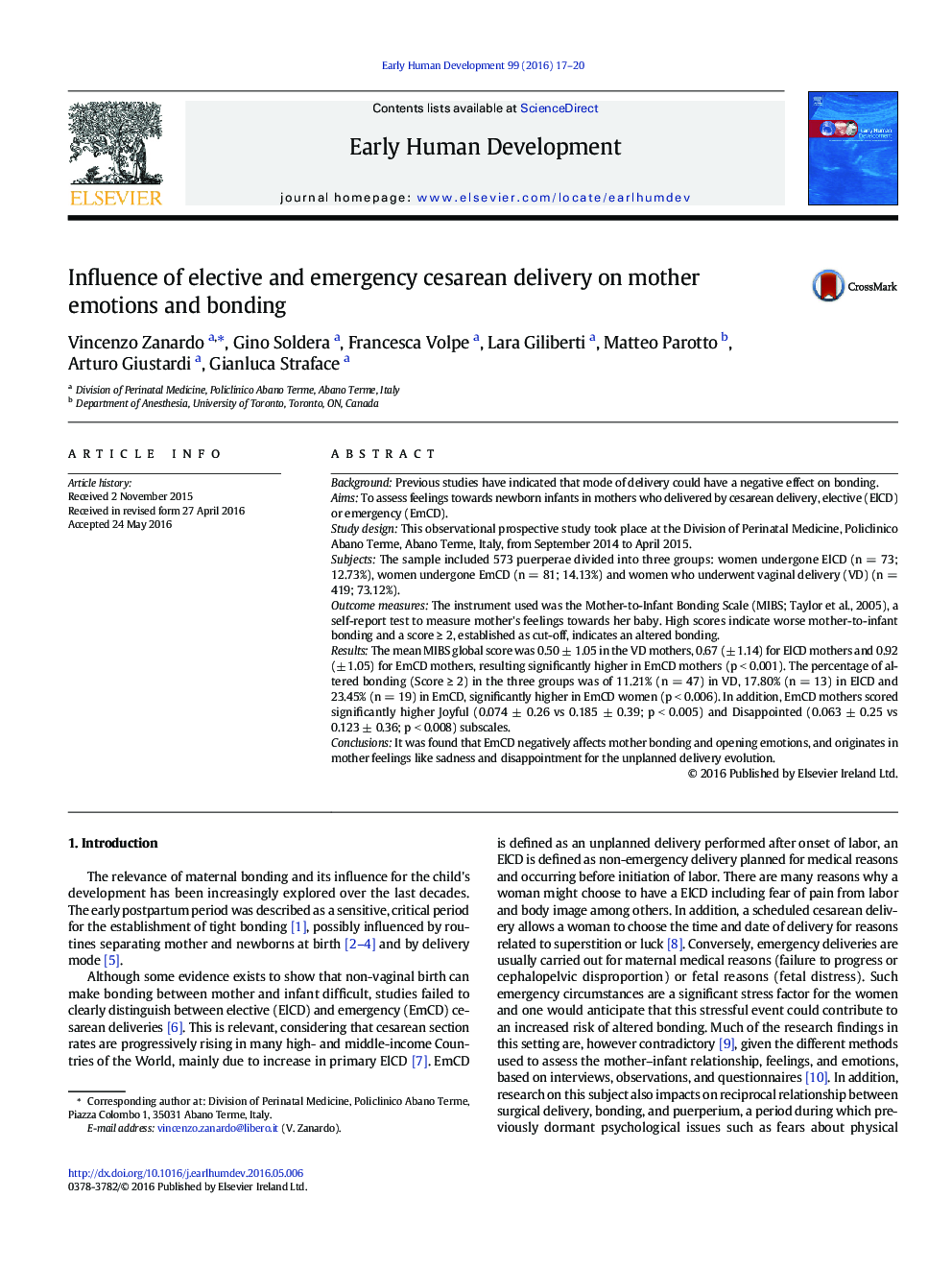| Article ID | Journal | Published Year | Pages | File Type |
|---|---|---|---|---|
| 3916415 | Early Human Development | 2016 | 4 Pages |
•We found significantly worse bonding in mothers who underwent emergency cesarean delivery, in comparison to vaginal delivery mothers.•These findings support the idea that mothers which mode of delivery had to change during childbearing from the expected standard vaginal have to face a heavy psychological load.•Emergency cesarean delivery elicits negative emotions, that impact on her ability to form a healthy bond with her newborn infant.
BackgroundPrevious studies have indicated that mode of delivery could have a negative effect on bonding.AimsTo assess feelings towards newborn infants in mothers who delivered by cesarean delivery, elective (ElCD) or emergency (EmCD).Study designThis observational prospective study took place at the Division of Perinatal Medicine, Policlinico Abano Terme, Abano Terme, Italy, from September 2014 to April 2015.SubjectsThe sample included 573 puerperae divided into three groups: women undergone ElCD (n = 73; 12.73%), women undergone EmCD (n = 81; 14.13%) and women who underwent vaginal delivery (VD) (n = 419; 73.12%).Outcome measuresThe instrument used was the Mother-to-Infant Bonding Scale (MIBS; Taylor et al., 2005), a self-report test to measure mother's feelings towards her baby. High scores indicate worse mother-to-infant bonding and a score ≥ 2, established as cut-off, indicates an altered bonding.ResultsThe mean MIBS global score was 0.50 ± 1.05 in the VD mothers, 0.67 (± 1.14) for ElCD mothers and 0.92 (± 1.05) for EmCD mothers, resulting significantly higher in EmCD mothers (p < 0.001). The percentage of altered bonding (Score ≥ 2) in the three groups was of 11.21% (n = 47) in VD, 17.80% (n = 13) in ElCD and 23.45% (n = 19) in EmCD, significantly higher in EmCD women (p < 0.006). In addition, EmCD mothers scored significantly higher Joyful (0.074 ± 0.26 vs 0.185 ± 0.39; p < 0.005) and Disappointed (0.063 ± 0.25 vs 0.123 ± 0.36; p < 0.008) subscales.ConclusionsIt was found that EmCD negatively affects mother bonding and opening emotions, and originates in mother feelings like sadness and disappointment for the unplanned delivery evolution.
